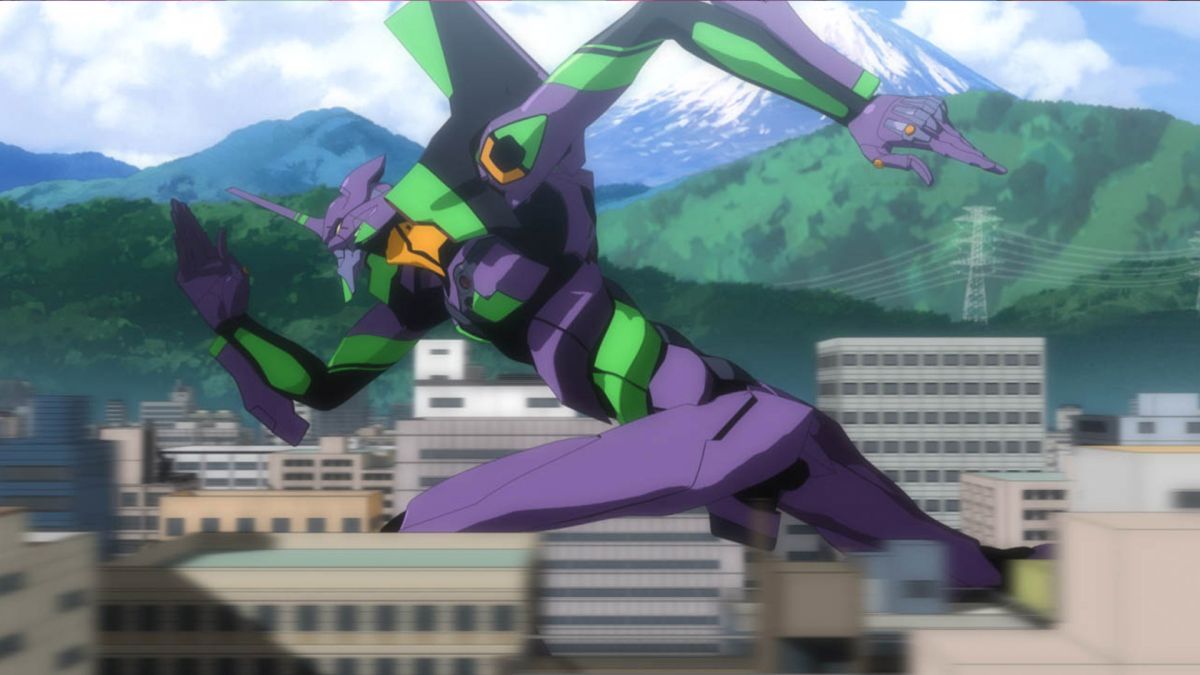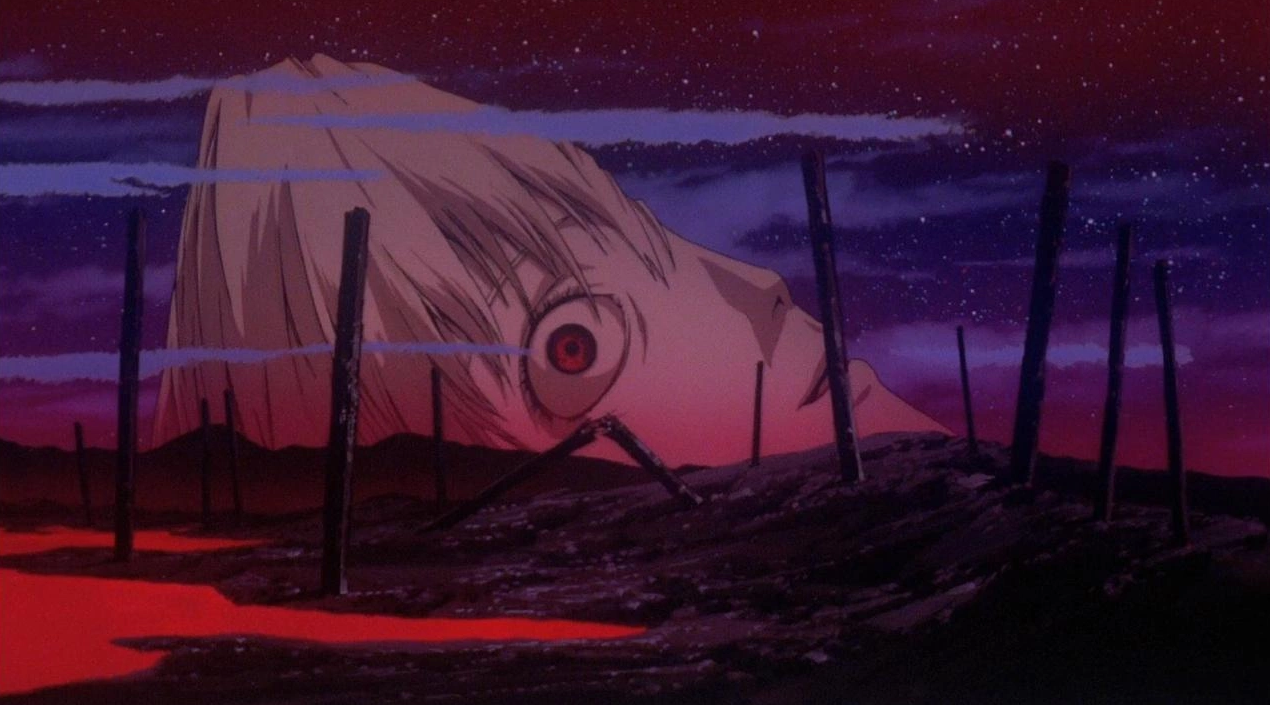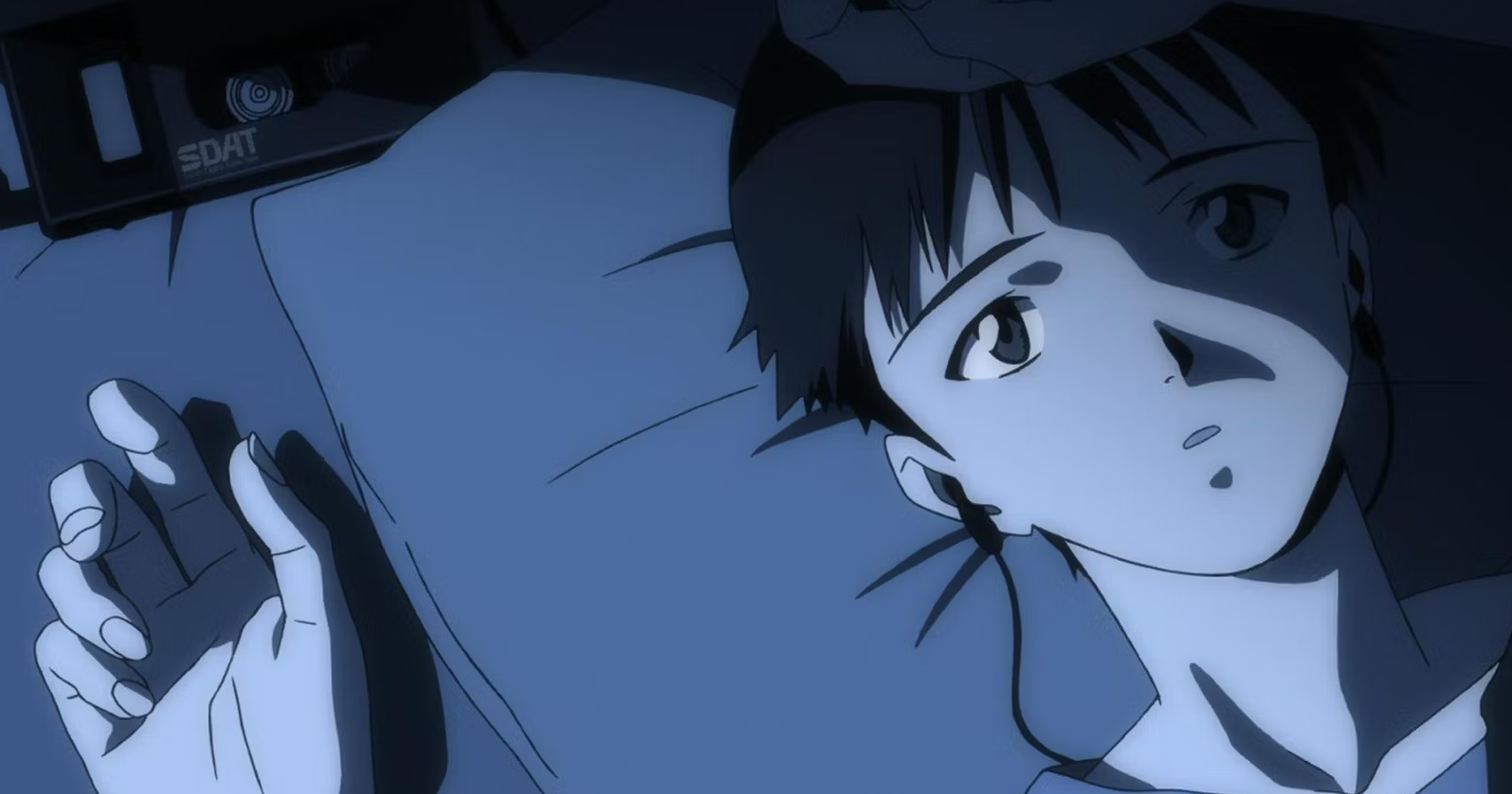Neon Genesis Evangelion is a pure classic created by Hideaki Ano. Whether you have watched it or not you must have heard its name in the Anime community.
It is one of the first mecha Anime that explored dark psychological subject matter and the struggles and fears a human goes through.
As the writer, Hideaki Ano was also going through clinical depression during that time.

Neon Genesis Evangelion gained a large and dedicated fan base since it first aired in the 1990s. It is known for its complex characters, psychological themes, and religious symbolism.
Many people consider it to be a must-watch for fans of Anime, while others may find its dense plot and controversial ending to be divisive.
| Title | Neon Genesis Evangelion |
| No of Episodes | 26 |
| Written by | Hideaki Ano |
| Studio | Gainax |
| Release Date | Oct 4, 1995 |
| Genre | Sci-Fi, Psychological thriller, Mecha |
What is Neon Genesis Evangelion?
Hideaki Anno filmed Neon Genesis Evangelion Tatsunoko, which aired on Tokyo TV from October 1995 to March 1996.
Evangelion takes place fifteen years after a global calamity known as Second Impact, specifically in the futuristic walled city of Tokyo-3. Shinji Ikari is the protagonist, a teenage teenager recruited by his father, Gendo, to the clandestine organization Nerv to operate a massive bio-machine robot named Evangelion in a battle against entities known as Angels.
The series dives into the feelings and experiences of Evangelion pilots and Nerv members as they try to prevent Angels from causing additional cataclysms. Throughout the process, they are challenged to comprehend the ultimate causes of events as well as the motives for human conduct. The series is considered a deconstruction of the mecha genre, with archetypal imagery borrowed from Shinto cosmology as well as Jewish and Christian mystical traditions such as Midrashic tales and Kabbalah. Psychoanalytic interpretations of human behavior by Freud and Jung are also strongly featured.
Is it worth watching Neon Genesis Evangelion?
Neon Genesis Evangelion is set in a post-apocalyptic world where humanity is on the brink of extinction due to the appearance of giant creatures known as Angels.
The story follows a teenage boy named Shinji Ikari, who is recruited by his estranged father Gendo Ikari, the head of an organization called NERV, to pilot a giant bio-machine called an Evangelion in order to fight the Angels.
As Shinji struggles with the psychological toll of piloting the Evangelion and his relationships with his father, his co-pilots, and other characters, he also grapples with more profound existential questions about the nature of life, humanity, and his own identity.
The show explores these themes through a mix of action, drama, and psychological and religious symbolism.
Evangelion was aired on a children’s television schedule, but as the series went on, the narrative got more and more grim and psychological.
By the finale of the series, all attempts at traditional storytelling had been abandoned since Anno believed that people should be exposed to live’s reality at an early age.
It has depth—the classic many-layered onion effect: it works well as an action Anime, has fantastic mecha, is psychologically deep and complicated, has excellent social commentary, crosses into religious terrain, and is interwoven with conspiracies and countercurrent.
In essence, it offers something for almost everyone.
Ultimately, whether or not you will enjoy Neon Genesis Evangelion will depend on your personal taste and what you are looking for in a show.
If you are a fan of deep, thought-provoking stories and are willing to invest the time and energy into understanding the show’s dense and sometimes confusing plot, then it may be worth watching.
However, if you prefer more straightforward and action-packed shows, or if you are put off by heavy psychological themes, you may find Neon Genesis Evangelion to be too much to handle
Characters of Neon Genesis Evangelion

The characters of Neon Genesis Evangelion are known for their complex and multifaceted personalities.
Shinji Ikari
Shinji Ikari is the main protagonist of the series. He is a teenage boy who is recruited to pilot the Evangelion Unit-01 to fight the Angels.
Shinji is introverted, emotionally distant, and struggles with self-esteem and self-worth. He is also deeply conflicted about his role as an Evangelion pilot and his relationship with his estranged father.
Only when he was 3 years old was Shinji shown love; after that, he was left to fend for himself in the absence of a father who could be relied upon.
He doesn’t feel comfortable or really grounded until Misato starts taking care of him.
But as Evangelion’s events progress, we observe him having trouble connecting with others around him (the grownups, Eva pilots, etc.), and he finally suffers a mental collapse.
Asuka Langley Soryu
Asuka Langley Soryu is a co-pilot of the Evangelion Unit-02 and one of Shinji’s main love interests.
Asuka is confident, assertive, and aggressive, and she often clashes with Shinji and other characters due to her brash and headstrong personality.
Once she makes up her mind about anything, she is self-assured and strong-willed and is not easily swayed. Asuka is always driven to succeed or establish her worthiness.
Despite her tough exterior, Asuka is also insecure and emotionally vulnerable, and she grapples with her own issues of self-worth and identity.
Rei Ayanami
Rei Ayanami is a pilot of the Evangelion Unit-00 and another of Shinji’s love interests. Rei is quiet, reserved, and mysterious, and she often seems emotionally detached from the world around her.
She also has a ton of expertise and wisdom because she is the institution’s first child.
She has an advantage in stressful situations because of her calm demeanor and critical thinking abilities. As the series progresses, it is revealed that Rei is a complex and deeply troubled character with a tragic past.
Gendo Ikari
Gendo Ikari is Shinji’s father and the head of NERV.
Gendo is a cold, calculating, and manipulative character who is driven by his own mysterious agenda. He is deeply estranged from Shinji and is often indifferent to his son’s emotional well-being.
Misato Katsuragi
Misato Katsuragi is a high-ranking member of NERV and Shinji’s guardian.
Misato is intelligent, resourceful, and strong-willed, but she also has a playful and energetic personality.
She forms a close bond with Shinji and becomes a maternal figure for him.
Is End of Evangelion worth watching?

The show has gained a devoted fan base since it first aired in the 1990s, but it has also been the subject of controversy and has divided viewers with its complex and sometimes pseudo-intellectual narrative, while others have been disappointed by the controversial ending of the original TV series.
The show’s creator, Hideaki Anno, has stated that the ending was intended to be open to interpretation and to encourage discussion among viewers, but some fans have found it to be dissatisfying or confusing.
The last two episodes take place inside the main character’s head since they are presented in a highly abstract way that confused many viewers.
The end of Evangelion is broken up into Episodes 25 and 26, and the ending has been described as open to interpretation and highly symbolic.
As Shinji has discovered (and presumably Asuka as well), even though the reality is hideous and harsh, he will only be guaranteed more failure and suffering if he does not make an effort to break free from the cycle of misery, despair, and escapism that has engulfed him.
Nevertheless, the only way he can be happy in the first place is if he chooses to confront reality and accept the danger of rejection and failure, even if he won’t have the assurance of success and finding pleasure.
Is Neon Genesis Evangelion about depression?
Neon Genesis Evangelion is known for its complex and thought-provoking themes, and one of the main themes of the show is the mental struggles of its main characters.
Many of the characters in the show are grappling with feelings of loneliness, isolation, and depression, and the show explores how these emotions can affect their relationships and their sense of self.
The main protagonist, Shinji Ikari, is the most affected by these feelings and is shown as deeply depressed and struggling with self-worth.

His experiences as an Evangelion pilot and his strained relationship with his father exacerbate his feelings of isolation and his difficulties in connecting with others.
While Neon Genesis Evangelion is not specifically about depression, it does explore the theme of mental health and the ways in which people cope with their inner turmoil.
The show presents a realistic portrayal of depression and other mental health issues, and it serves as a reminder of the importance of seeking help and support when dealing with these challenges.
It’s well known by this point that Hideaki Anno, the series director, had a serious depression when he started. He ended up putting his entire soul into the storyline as a result, and his knowledge of his condition got better.
There’s a reason why the series’ second half begins to make references to classical psychology.
Anno said that Shinji, the main character, was actually learning to live with his emotions and coming to grips with how he feels about himself and his interactions with others in Evangelion rather than actually battling Angels and rescuing the planet.
Does the iconic anime Evangelion live up to its reputation?
Neon Genesis Evangelion indeed lived up to its reputation. It’s a watershed moment for a media that’s still loved, hated, analyzed, and disputed decades after its alleged demise.
Americans who became anime fans in the last decade, on the other hand, were out of luck when it came to getting into the program. The original American licensor, ADV Films, went bankrupt while attempting to produce a live-action Evangelion film. Other firms were unable to save the American license due to rights disagreements between Gainax, the show’s original creators, and Khara, director Hideaki Anno’s new studio.
It remains a masterpiece, both deeply personal and profoundly imperfect. Several portions of the show aren’t as powerful today as they were in 1995, but it’s still worth watching. At the same time, the purpose of this article is to provide an overview for potential new viewers, explicit plot spoilers will be avoided.
Nonetheless, because it is impossible to debate Evangelion’s legacy without discussing its tonal shifts, individuals who want to go in absolutely blind may choose to skip this list.
Conclusion
- Neon Genesis Evangelion is often classified as a mecha Anime, due to its themes of giant robot combat and the psychological toll of piloting such machines. It also incorporates elements of drama, psychological thriller, and religious symbolism.
- Some viewers have found the ending to be confusing or dissatisfying, while others have appreciated its ambiguities and the opportunity it provides for discussion and analysis.
- Evangelion is a complex Anime that questions and analyses human relationships, feelings, identities, and individuals while also teaching us a tender lesson about how, despite the challenges of life, we can still strive for happiness and self-acceptance and find purpose in it.